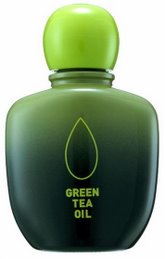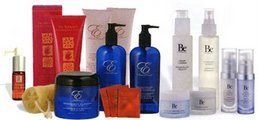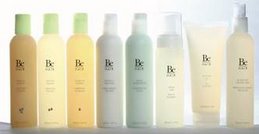
Cosmetics 'can leave women dying to look gorgeous'
Shampoos, moisturisers, hair sprays, lipstick, blushes and eye makeup contain ingredients forming a cocktail of cancer-causing toxins
LONDON - Women are being exposed to deadly diseases by the daily use of common cosmetics bought over the counter, a new study says.
The synthetic ingredients in the products turn the most innocent-looking shampoos and moisturisers into cocktails of toxins, that could cause cancer over years of sustained use, The Observer reported, citing the study.
Called Drop Dead Gorgeous: Protecting Yourself From The Hidden Dangers of Cosmetics, the study is to be published in Britain next month and has been authored by Ms Kim Erickson and Dr Samuel S. Epstein.
Under the British Department of Trade and Industry's 1996 Cosmetic Products (Safety) Regulations, more than 3,000 ingredients had been approved for cosmetic use in Europe, The Observer said.
Ms Erickson said many more ingredients found their way into use, through loopholes in the law. One such loophole is the caveat that allows products to contain traces of banned substances if they could not reasonably be removed during or after manufacture.
The Observer quoted her as saying: 'Modern cosmetics contain a host of dubious ingredients which would be more at home, in a test tube than on our faces.
'Coal tar colours, phenylenediamine, benzene, mineral oils, fragrances, even formaldehyde, are just a few of the synthetic chemicals commonly included in shampoos, skin creams and blushes - toxins which are absorbed into your skin with every use.'
She believes the adverse effects of toxins is compounded over decades, confusing hormone receptors, and slowly altering cell structure.
Chemicals are transmitted into the bloodstream in a number of ways: powders have the least absorption, while oily solutions or those designed to increase moisture, allow more of the chemical to be absorbed.
Eye makeup can be absorbed by the highly sensitive mucous membranes. Hair sprays, perfumes and dusting powders can be inhaled, irritating the lungs. Lipstick is often chewed off and swallowed.
The Observer said that unlike food or drugs, cosmetics and their raw ingredients were not subject to review or independent pre-market approval.
Dr Jean Munro, medical director of The Breakspear Hospital, Hertfordshire, was quoted as saying 'There is no question that people are being damaged by their cosmetics.'
Her hospital specialises in allergies and has seen 8,000 women since opening in 1982 - nearly all of whom were found to have a sensitivity to cosmetics.
She said 'One of the most extreme cases I have seen was a woman whose bone marrow was affected by chemicals used in hair dye. The level of her blood platelets dropped and she broke out in a severe rash.'
Beautician Denise Santamarina, 34, battled chemically induced lupus for 10 years. She began to recover after she stopped using synthetic cosmetics, according to The Observer.
She was quoted to have said: 'I started getting sick, when I began taking cosmetology classes.'








 Stumble it!
Stumble it!













No comments:
Post a Comment